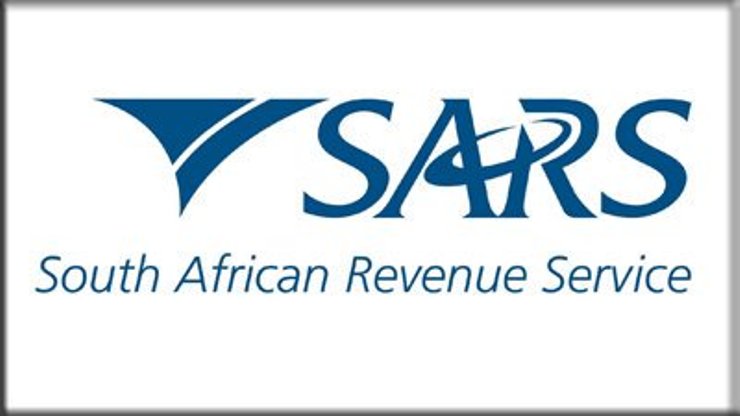SARS Intensifies Crackdown on Illicit Fuel Trade Costing R3.6 Billion Annually
“Criminal syndicates involved in this activity threaten our society, economy, and national security,” SARS noted in its official statement.

- Country:
- Zambia
In a significant national effort to combat South Africa’s growing illicit fuel trade, the South African Revenue Service (SARS) has launched a coordinated enforcement drive in partnership with the South African Police Service (SAPS) and other agencies under the National Joint Operational and Intelligence Structure (NATJOINTS). This multi-pronged initiative targets organised criminal syndicates whose fraudulent fuel dealings are costing the country’s fiscus approximately R3.6 billion each year.
Over the past four months, SARS-led operations have gained momentum across the provinces of Gauteng, Mpumalanga, and KwaZulu-Natal, resulting in criminal charges, seizures, and widespread investigations aimed at dismantling this shadow economy.
Illicit Fuel Trade: A National Economic Threat
According to SARS, the illicit fuel trade involves multiple layers of criminality, including:
-
Fuel smuggling across borders
-
Adulteration of diesel with paraffin
-
Under-declaration of fuel volumes
-
Fraudulent documentation and customs evasion
The Maputo Corridor, which connects South Africa, Eswatini, and Mozambique, has become a primary conduit for such activities. Syndicates exploit weak oversight and border loopholes, allowing them to import fuel unlawfully and manipulate storage and distribution processes to evade taxes and manipulate prices.
“Criminal syndicates involved in this activity threaten our society, economy, and national security,” SARS noted in its official statement.
Criminal Investigations and Major Seizures
The NATJOINTS operation has so far identified 23 targets and initiated 13 criminal cases with SAPS for contraventions related to customs, excise, and fraud. These cases are supported by SARS trade investigators, who have been pivotal in conducting intelligence-led operations, including search-and-seizure missions at depots and fuel storage facilities.
Key findings include:
-
953,515 litres of adulterated diesel fuel seized
-
Discovery of six fuel depots violating Section 37 of the Customs and Excise Act 91 of 1964
-
Twelve fuel transport trucks flagged for false import declarations, under-reporting by as much as 15,000 litres per load
-
Two fuel washrooms, one being a rare mobile washroom installed in a truck, used to illegally remove chemical markers from paraffin
-
Total seized assets and contaminated fuel valued at R367.27 million, subject to ongoing criminal and civil liability cases
Mechanics of Fraud: Adulteration and Under-Declaration
Fuel adulteration, a common practice uncovered by SARS, involves the mixing of diesel with paraffin—a lower-taxed or duty-free petroleum product. In some of the sampled tankers, paraffin content was as high as 68%, making the fuel not only illegal but also harmful to engines and environmental standards.
Similarly, under-declaration schemes involve importers reporting less fuel (e.g., 40,000 litres) than what they are actually bringing into the country (up to 60,000 litres). These falsified records enable them to dodge applicable duties and taxes, causing a serious revenue leak and undermining market competition.
National and Global Implications of the Illicit Economy
SARS Commissioner Edward Kieswetter described the illicit fuel trade as part of a wider shadow economy, which includes:
-
Tax evasion
-
Smuggling
-
Fraudulent trade practices
-
Illicit manufacturing
He noted that such criminality erodes public trust, undermines legitimate businesses, and enables corruption and organised crime.
“These criminal syndicates have grown bolder, acting with impunity. But they underestimate our resolve. We will spare no effort in dismantling these networks,” said Kieswetter.
SARS reiterated that tackling the illicit economy requires a whole-of-government approach, including cooperation with international agencies, private sector monitoring, and civil society support.
Policy Response and Legal Enforcement
Authorities have intensified their enforcement of the Customs and Excise Act and are evaluating policy gaps that enable large-scale fuel fraud. Specific areas under review include:
-
Border surveillance technologies
-
Fuel marker regulations and chemical tracing
-
Licensing and audit mechanisms for fuel depots
-
Stronger penalties and fast-tracked prosecutions
The collaboration between enforcement agencies has resulted in real-time intelligence sharing, coordinated raids, and joint investigations, setting a precedent for handling other forms of illicit trade in the country.
Looking Ahead: Strengthening National Resilience
The SARS-SAPS collaboration serves as a model for strategic law enforcement aimed at protecting South Africa’s economic integrity. By uncovering systemic fraud in the petroleum supply chain, the operation is a wake-up call for regulators and a clear message to criminal enterprises that such actions will not go unpunished.
As the investigations progress, more arrests and asset forfeitures are expected, reinforcing the state’s commitment to restoring lawful trade, recovering lost revenue, and ensuring market integrity.
- READ MORE ON:
- SARS
- illicit fuel trade
- diesel adulteration
- Edward Kieswetter
- fuel smuggling
- Maputo Corridor
- South Africa excise fraud
- Customs and Excise Act
- paraffin mixing
- SAPS
- NATJOINTS
- economic crime South Africa
- fuel depot raids
- revenue loss
- mobile washroom trucks
- South Africa fuel fraud crackdown










